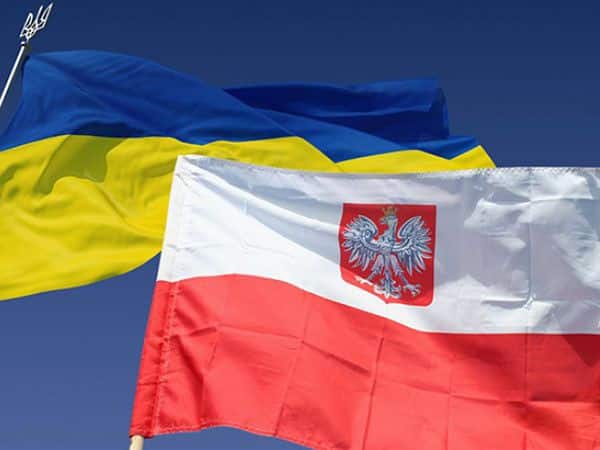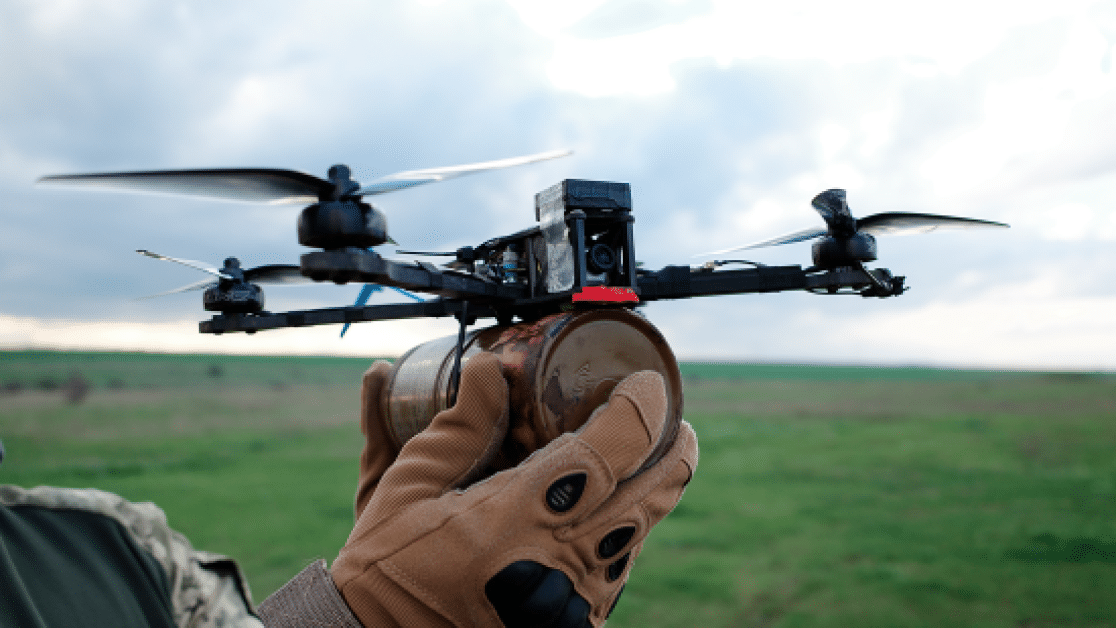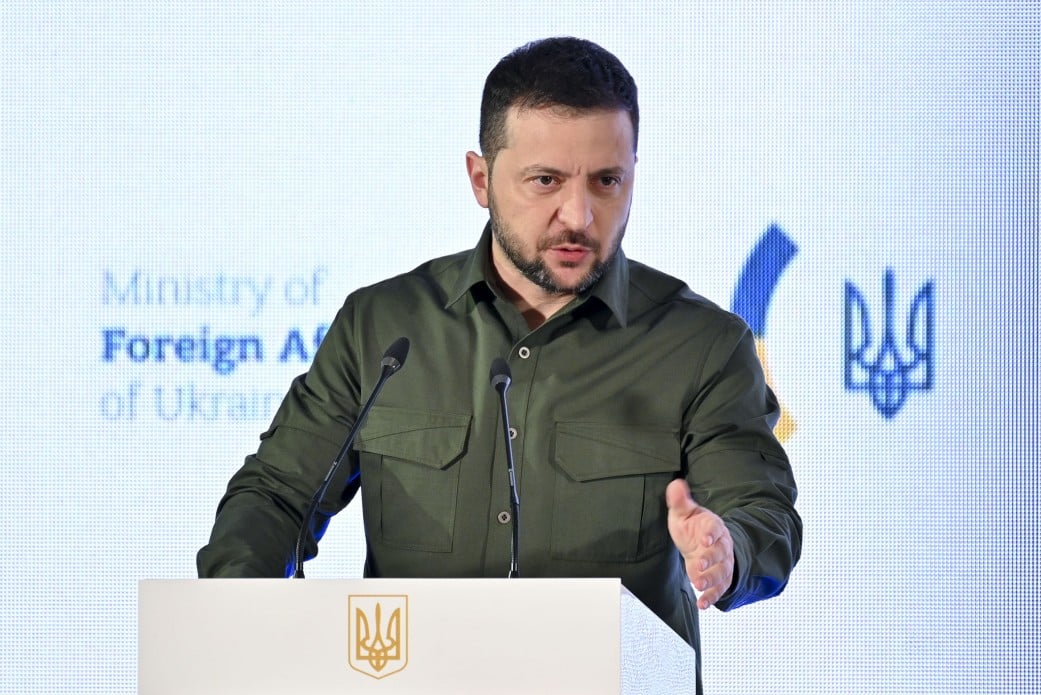At the end of December, the internal chats of Ukrainian diplomats were heated. Employees of embassies and the Ministry of Foreign Affairs exchanged rumors about Olesya Ilashchuk, the new ambassador of Ukraine to Bulgaria. On Sunday, December 25, 2022, information about this also reached the mass media and Telegram channels, and “European Pravda” (Ukrainian news website) found data about the new ambassador, and confirmed that the position was indeed received by a person, not from the diplomatic system.
Appointment of ambassadors from outside the Ministry of Foreign Affairs, in general, is a common practice, and not only in Ukraine. This fact is not something extraordinary; moreover, some of these ambassadors have proven their effectiveness.
However, this is another story.
And when the government justifies the Presidential decree by comparing Ilashchuk to Ambassador Oksana Markarova (Ambassador of Ukraine to the United States) or other colleagues, it is either manipulation or a lack of understanding of the problem.
Because the President’s decision on a new ambassador to Bulgaria will have either bad or catastrophic consequences.
This text explains why this is not an exaggeration.
See also: How “Russian peace” is being built in Turkey and how it threatens Ukraine’s partner
However, Bankova Street (a street which houses the Presidential Administration of Ukraine and various official residences), still has the opportunity to avert disaster. The current government has repeatedly proved over the years that, at least in the area of foreign policy, it is able to listen to criticism and correct mistakes. The decision on the ambassador, which means the destruction of Ukraine’s already less than ideal position in Bulgaria, should be canceled.
Unfortunately, there is little confidence that Bankova Street will take this step. At the moment, Zelenskyy’s team is in denial, refusing to recognize the obvious, and coming up with excuses for an obviously wrong personnel decision which could cause serious damage to the country.
It is worthwhile to understand what the danger is, why Bulgaria agreed to the appointment of the ambassador, which has so outraged Ukraine, and why the Foreign Ministry’s justifications for the personnel move are nonsense.
Moreover, it is not the Ministry of Foreign Affairs that is behind this scandalous appointment.
See also: War for the Arctic or energy sabotage: why Russian spies have become more active in Norway
This text is long and detailed, but it is worth reading to the end. Including the newly appointed diplomat herself, to understand the level of challenges she will have to overcome. Or not, if common sense prevails in this story.
Unpublished biography of the ambassador
“Sergiy, we should wait. She must have some connection to Bulgaria. This appointment cannot be as unreasonable as it seems,” one of the Ukrainian ambassadors convinced the author of these lines.
Although the top diplomats who gathered for a presidential meeting in Kyiv at the end of last week discussed this particular personnel decision – the appointment of Olesya Ilashchuk as Ukraine’s new ambassador to Bulgaria.
On Friday, before the Presidential decree was published, diplomats noticed an unknown black-haired woman who came to the meeting of Ukrainian ambassadors with Volodymyr Zelenskyy, wearing a suit with a large yellow ribbon (ambassadors were asked to stick to smart casual, but not all of them did) and sat in the hall throughout the event, which means she was obviously supposed to be an ambassador as well.
See also: Ukraine’s victory in the Asian era: what experience should be adopted
After the President’s website announced the appointment of the head of the diplomatic mission in Bulgaria, diplomats began sending each other a link to her Facebook profile (she closed it a few days later), where her specialties included psychology and sexology, there were many posts about trips to Greece for psychology training, and there was no connection to Bulgaria or international affairs. On Sunday, the details of the scandalous appointment became public.
The attention of social media, of course, was drawn primarily to the mention of sexology in the new diplomat’s self-description and her posts on this “viral” topic (although they are not the main problem).
But who is Olesya Ilashchuk in reality?
European Pravda received from its own sources the content of her biography, which was sent to the Bulgarian diplomatic mission in the so-called “request for agrement” – that is, during the consultation with the host country on the appointment.
We tried to find this document officially by sending inquiries to the Ministry of Foreign Affairs and the Presidential Office, explaining that we wanted to understand what the newly appointed top diplomat had in common with the position she had chosen, but to no avail.
See also: Putin raised the stakes: how Japan helps Ukraine
Because the newly appointed ambassador has essentially nothing to do with international affairs.
The biography of the 46-year-old native of Chernivtsi is very atypical.
It is noteworthy that she has radically changed her work profile many times during her life.
She began working (at least officially, according to her documents) at the age of 17 – after graduating from high school, she chose to work rather than study at a university, which was a very unusual decision in 1993. Even then, her level of English (based on her official biography) was sufficient to keep her working at the school as a teacher’s assistant and then as an English teacher.
In 1997-2000, Olesya Ilashchuk gave up teaching and tried her hand at journalism, working for the Bukovyna branch of ICTV (Ukrainian TV channel).
Then she moved to Kyiv and simultaneously went into business, immediately taking up management positions. Since 2002, she has been working at Slavik Group Investment as the Director of International Development and Public Relations (it is worth noting that despite the similarity of the title, this position is not related to international relations, but rather to journalism and communications).
In 2005, she made a new career change. At that time, the future ambassador connected her life with precious stones, and for this purpose, she even took courses at the Belgian Union regulating diamond processing. The new skills came in handy at first at the Gemma jewelry company (and again, immediately in the management position of development director, and later CEO); then she worked for Bulgari.
2013 was a new change of direction. Olesya Ilashchuk became the executive director of the Academy of Modern Education, which manages educational institutions. In 2015, she was appointed CEO of Star Pack LLC (specializing in the production of containers, packaging, etc.). In 2016, she moved from Kyiv to Baku, where she headed the Sharg-Garb Publishing House for two years. The latter company is quite public and has social media profiles with hundreds of published corporate photos, but for some reason, we could not find a Ukrainian woman in charge.
It is difficult, but, in principle, possible, to imagine that the newly appointed ambassador Ilashchuk is such an effective manager that she was constantly invited to run a company with a new profile for a year or two. But it is more likely that such dramatic changes have some other explanation.
But in 2018, our heroine decides to give up her successful career as a top manager in favor of private practice as a psychotherapist in Kyiv. She has no higher medical education, but specializes as a gestalt therapist and sexologist. According to her official biography, the “medical” period of her work is still ongoing, so now psychotherapist Ilashchuk has to quit her practice and move to Sofia to become an ambassador.
Although Ms. Ilashchuk does have a degree, this is a separate story, which will be discussed later.
Explanation of the authorities and the reason for the appointment
First of all, about the procedure.
Officially, Ukrainian ambassadors are appointed by the President on the proposal of the Ministry of Foreign Affairs: that is, it is the Minister of Foreign Affairs of Ukraine Dmytro Kuleba who must propose one or more candidates for a vacant position (or one that is about to be vacated). Bankova Street must approve the candidate or choose one of the proposed ones, agree it with the candidate, and then agree with the capital where the ambassador will work and, in fact, appoint him or her.
In practice, the beginning of this procedure works differently.
Sometimes it is the Presidential Office that informs the Foreign Ministry that this person should be the ambassador.
And in the current relations between the branches of power in Ukraine, the minister cannot say “no,” no matter who the candidate chosen by Bankova Street is. Numerous sources of European Pravda emphasize that this is exactly what happened to Olesya Ilashchuk. The decision to appoint her was made by Bankova.
But this person did not appear “from the street”. At least not at the moment.
One of European Pravda’s sources in the Office of the President of Ukraine assures us that she participated in certain meetings with ambassadors back in the spring of 2022, when the President’s office was seeking outside ideas on how to adjust processes in the country during the resistance to aggression. At the time, she is said to have had some good ideas about the flow of people traveling abroad through her native Bukovyna.
“At least in the issue of helping refugees, she has proven her capabilities, and she has a chance to show results as ambassador,” the source said.
See also: The biggest geopolitical scam of the 20th century: why Russia’s influence in the UN is baseless
Let’s leave aside the question of how Olesya Ilashchuk came to the attention of the Presidential Administration, whether in the spring or now. Several sources have pointed to Andriy Yermak’s (the Head of the Office of the President of Ukraine) personal involvement in the decision, but there is no evidence or explanation for their acquaintance.
Much more important is something else. The fact is that the challenges facing Ukraine in Bulgaria today are completely different from refugee management! And they are related to the lack of professionalism of the new ambassador, who has not worked a single day not only in diplomacy but also in the civil service. (In the next section, we will explain in detail what this means and what threats this appointment poses to Ukraine)
The Foreign Ministry, which was the “extreme” one, published an explanation on Monday that the practice of political appointments from outside the Foreign Ministry is normal and effective. “Over the past two years, all non-cadre diplomats appointed to the positions of ambassadors have demonstrated decent results of work,” the Ministry said in a statement (which is not entirely true, as we will discuss below).
See also: Anatomy of rashizm: how the undefeated totalitarian legacy became a countdown to Putin’s Russia
And in order to at least somehow “rebut” the argument that Olesya Ilashchuk lacks international experience, the Ministry of Foreign Affairs referred to the fact that she “received a diploma with honors in the specialty “Local Studies” from the Department of International Relations of the Chernivtsi National University.”
In fact, the presence of specialized education (as opposed to specialized experience!) is not at all decisive for an ambassador. In the structure of the Ministry of Foreign Affairs, there are many ambassadors without the education of an internationalist. A vivid example is former minister Pavlo Klimkin, a physicist and mathematician by education, who started working at the Ministry of Foreign Affairs in 1993 in the field of disarmament, which required technical qualifications. After that, Klimkin went through all the ranks from attaché to minister. He did not obtain a second higher education as a diplomat (and why, for the diploma?)
However, even Olesya Ilashchuk’s education raises serious questions.
It is understandable why the Foreign Ministry reported on her diploma: it is her only (although very conditional!) connection to diplomacy.
However, she received it from Chernivtsi University in 2005 at the Department of International Relations, which had been established a few years earlier (there could be a joke here about the quality of education). And now the most important thing: in this and previous years, according to her official biography, she worked in Kyiv, in a senior business position!
See also: Russians need to denazify themselves first, – Chief Rabbi of Ukraine Moshe Azman
Of course, this does not exclude part-time education and/or external studies (which also result in a state diploma). But the detail is eloquent…
So what is the real problem?
Starting with the headline, this article emphasizes that the comments on the appointment (or rather, the shock of it in the professional community) are not related to the honorable profession of sexologist. And even more so – not with the fact that the new ambassador does not come from the Ministry of Foreign Affairs. In general, “political appointments” of ambassadors are not taboo.
A number (though not many!) of countries in the world have this practice, and Ukraine is one of them. But political appointments like Ilashchuk’s are absolutely unacceptable. In the history of Ukraine, there has never been an example of a new ambassador with a similar level of unprofessionalism. The closest analogy is the appointment of General Lytvyn as ambassador to Armenia under Poroshenko’s presidency. But even then, firstly, it was a person with experience working for the state, and secondly, it was difficult to spoil almost zero relations with Armenia…
See also: Will Turkey be able to take advantage of the weakening of Russia?
And the explanations from Bankova Street in their correspondence with journalists, which equated Ilashchuk’s appointment with the appointment of Oksana Markarova (an undeniably effective ambassador of Ukraine) as ambassador to the United States, are manipulative.
The fact is that in those political appointments that proved to be effective – Markarova in the United States, Kovaliv in Canada, etc. – the ambassador was a person with experience in politics and international work, with experience in interstate and intergovernmental negotiations, etc. And this is the key! And this is exactly the experience that Olesya Ilashchuk does not have at all.
She also has no experience in responding to information crises, as the first days after her appointment have already shown.
Not to anticipate comments and not even to write a post about her appointment, and then, instead of explaining, simply close her Facebook profile, which had been studied by the entire diplomatic community for two days (studying her trips to Greece and the public’s comments on them), is ridiculous. But that’s exactly what she did.
But if ambassador Ilashchuk comes to Sofia, the current crisis will seem like a warm-up. The fact is that Bulgaria is one of the most problematic among EU and NATO countries for Ukraine. The challenges that the new ambassador will have to address are unprecedented.
Bulgaria is one of the three EU countries where parliaments did not give their consent to the Ukrainian President’s speech on Russian aggression (along with Hungary and Austria).
Until recently, Bulgaria blocked arms supplies to Ukraine. This blockade has now been broken with the first, test deliveries, and this has caused internal conflicts – the Bulgarian President accused MPs of “inciting war.” And the new ambassador is faced with the task of not only maintaining supplies despite the attacks but also expanding them with the necessary nomenclature.
Bulgaria is a country with traditionally strong Russian influence, which is still felt today. And in 2023, Ukraine will face two key international tasks: to start negotiations on EU accession, and to achieve a change in the format of relations at the NATO summit. The new ambassador must be able to sense political movements and avoid making decisions which could block any of these tasks. Moreover, Bulgaria has experience with such blocking.
Does Olesya Ilashchuk have the necessary qualifications for this? This is a rhetorical question.
After all, she doesn’t even have the so-called “bird language” of diplomats, without which it is difficult to negotiate, for example, sensitive assistance with our partners on the ground.
See also: Iranian kamikaze drones Arash-2 – what is known about them, their capabilities and characteristics
Sometimes, in the case of political appointments, all this work is done for the new ambassador by a strong “second number” of the embassy as an adviser (in fact, a deputy ambassador) who could run the diplomatic mission himself. But in Sofia, this position is filled and, according to several interlocutors of the European Pravda, does not fit this description. And it will be very difficult to find a high-class diplomat to go there under Ilashchuk’s leadership. Because she has already acquired a toxic image in the Foreign Ministry.
And finally, we need to respond to the remark from the Foreign Ministry’s (and in fact Bankova’s) explanation that Bulgaria gave an agrement, meaning that it agreed with the ambassador’s professionalism. This is not true, and the Foreign Ministry knows it. An agrement in no way confirms professionalism. It’s just a consent to the appointment. And for the Bulgarian authorities, the appointment of an unprofessional Ukrainian ambassador is the best possible option, as it means less pressure on Kyiv and less conflict.
And the only one who loses in this situation is Ukraine.
So what should we do?
The “usual” ending of this story can be predicted in advance – it will be Olesya Ilaschuk’s dismissal from the post of ambassador. It will happen sooner or later, but probably before the end of the standard 4-year term.
The only question is how quickly it will happen and how much damage the unprofessional ambassador will do to bilateral relations and Ukraine’s defense capabilities.
And this step will have to be taken.
Just as it is obvious that Andrii Taran will have to be fired from his post as ambassador to Slovenia, where he was “honorably exiled” in 2021 (another wrong decision in advance, given that this is also an EU and NATO state – but at least it was made before the start of the great war, when it seemed less critical.
But there are two ways to avoid problems.
This requires one thing: the ability of Bankova’s management to admit the mistake with this appointment, at least privately in their circle. And this should happen as soon as possible, before Olesya Ilashchuk leaves for Bulgaria.
First, President Zelenskyy can cancel the decree as unimplemented after hearing unanimous criticism from international experts. But it is hard to believe that he will have the political resolve to do so because it means publicly admitting a mistake and publicly correcting it (for some reason, politicians are afraid to do so).
Secondly, if the first option is not possible, the initiative can come from Ilashchuk herself. She could ask the President for her resignation, under a wave of criticism, either “due to a change of plans” or “for personal reasons.” You can come up with anything. The main thing is the result.
Finally, it is necessary to ensure that this does not happen again. For example, by introducing a procedure of consultations with the relevant parliamentary committee before sending a request for an agrement.
Given that the President has recently announced a reform of the law on the diplomatic service, this is not difficult to do. If only there were political will and a desire to avoid the kind of disgrace that is spoiling Bankova’s image right now.
Originally posted by Sergiy Sydorenko on the European Pravda. Translated and edited by the UaPosition – Ukrainian news and analytics website




